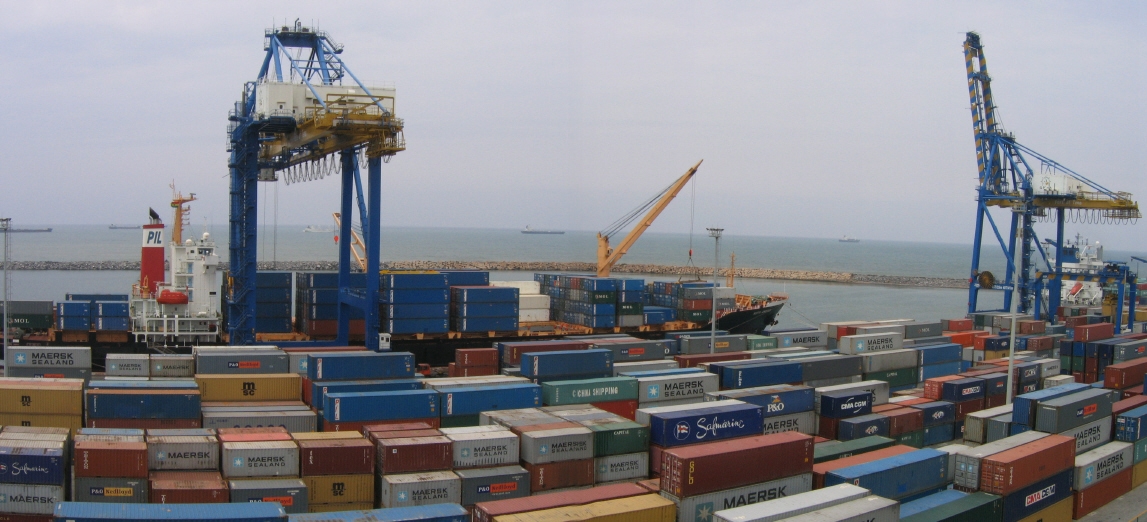
Guaranty Trust Bank (Ghana) Limited, has participated in a US$80million syndicated Term Loan Facility arranged by Rand Merchant Bank(RMD) as part financing for the design and construction of an unloading jetty at the Tema Port to help increase the number of shipping vessels that can berth at any one time.
The sum of US$42million had earlier been arranged under Phase 1 of the financing.
GTBank, as part of its involvement in the Phase II of the Tema Port expansion programme, participated to the tune of US$20million in the three-bank syndication. FirstRand Bank Limited, acting through its Rand Merchant Division and as lead arranger/facility agent, funded US$50million with the other participating institution, FBN Bank (UK) Limited, availing the remaining US$10million of the syndication amount.
In Phase II of the expansion programme, the perpendicular bulk unloading jetty will be extended from the 150 metres reached in Phase I to about 450 metres, and dredged to a depth of 16 metres when concluded.
The syndicated term loan facility to finance construction of the jetty was mandated by the Ghana Ports and Harbours Authority (GPHA) in anticipation of increased sea trade activity due to expected growth in imports and, to some extent, exports from the country.
Moreover, constructing the new jetty inside the present port basin will help in handling vessels with dry bulk cargoes such as cement, clinker and gypsum. The new jetty is also planned to accommodate handling other commodities when the need arises.
Presently, the size of the jetty can only accommodate a few vessels — and as a result the average waiting period for ships in the anchorage area outside the port before berthing has increased to over one week. This situation invariably contributes to increased cost of imports into the economy generally.
Commenting on GTBank’s involvement in the syndication, Managing Director of the bank Mr. Lekan Sanusi stated: “At the end of it all, GTBank and the others involved in this syndication will have made a very significant contribution toward the development of Ghana”.
The Group Head, Corporate Bank 1, Mr. Nelson Ofosu, expressed his gratitude to FirstRand Bank Limited, the Ghana Ports and Harbours Authority, and all others involved in this syndication for the opportunity extended for GTBank to be a part of this exciting achievement.
“As the only local bank in this syndication, we remain most grateful and will continue to explore new ways of working together,” he said.
It will be recalled that in December 2011 a US$42 million five-year loan facility was concluded for GPHA — then with Rand Merchant Bank as lead arranger (US$22million), and Ghana International Bank as lender (US$20million). This facility represented Phase I of constructing a new jetty at the Tema Port with a total estimated cost of US$135m.
The Ghana Ports and Harbours Authority is a statutory organisation wholly-owned by the Ministry of Transport. It manages and operates the various ports in conjunction with a host of private service providers in the areas of vessel handling, stevedoring, transfer, storage, receipt, and delivery of containerised and general cargoes. Others are safety, security and conservancy services.
During its relatively brief years of operation in Ghana, Guaranty Trust Bank (Ghana) Limited has established itself as a pacesetter and reference point in the financial services industry in Ghana. Aside from its strength in retail and electronic banking, the bank has capacity to also handle big ticket transactions as evidenced by this and other financing deals.
At the 2013 Ghana Banking Awards ceremony held in Accra, Guaranty Trust Bank (Ghana) Limited was named, aside from other awards, as Co-winner, Trade Finance Deal of the Year Award in recognition of its participation in a similar loan syndication deal for a government agency. Such activities go to prove the bank’s contribution toward the country’s development.
The bank recently opened a branch in the GPHA Towers at the Tema Harbour area to cater for the many businesses, agents and individuals plying their trade within the port environs.
Source: BFT


